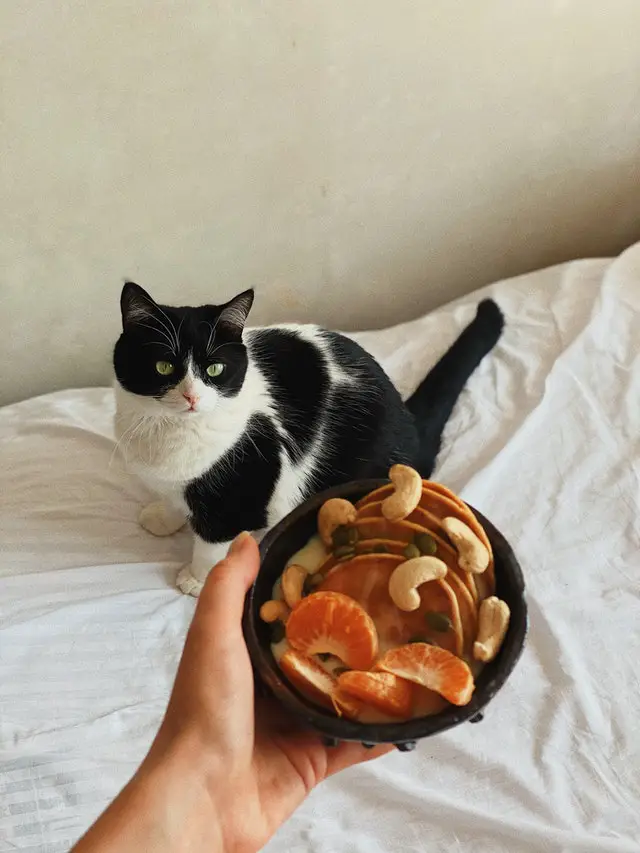
It is always good to inquire before sharing fruit with your cat: some foods are toxic for him. Can the cat eat oranges? Let’s find out together!
At the base of a healthy cat there is always a healthy and balanced diet. Even if we ensure the cat an adequate diet, there is always a moment in which we risk going “off track”: we are talking about the snack, during which we are tempted to share a food with our furry dog, without asking ourselves first if it is okay. for him. For example, can the cat eat oranges? Let’s find out together!
The cat and the fruit
Can the cat eat fruit? The answer is yes, but with many precautions. The nature of the feline still remains that of a carnivore, and therefore the cat’s diet must be based almost exclusively on meat. Other foods can only partially be part of your diet.
It is good to specify that the cat, in nature, does not eat fruit. It is man who has sporadically introduced this food into his diet. But some fruits are forbidden to the cat, because they are dangerous for his health.
Can the cat eat oranges?
And the orange? Is it also included in the list of forbidden fruits for cats? The answer is yes. We all know the feline’s aversion nature to sour tastes; so much so that the cat can’t stand the smell of citrus fruits. But is it a simple food preference, or is there something else behind it?
In reality, the feline keeps a safe distance from oranges with good reason, as eating them would cause serious health problems. The toxic effects would cause cat poisoning.
Symptoms
Every part of the orange is toxic to the cat: from the pulp to the seeds, passing through the peel. The symptoms of orange poisoning can be different, depending on the amount ingested and therefore the situation. Here are the main ones:
- He retched
- Diarrhea
- Tremor
- Excessive salivation
- Decrease in temperature
- Burns, if the cat is exposed to sunlight
Timeliness of the rescue
If you notice that your cat has one or more of the aforementioned symptoms, you should immediately contact your trusted veterinarian. As always, the promptness of rescue is essential to reduce the risks associated with cat poisoning. Tell the professional any information that may be useful for the diagnosis.
If the cat has vomited, do not forget to collect a sample of the expelled substance: if you have not seen the fruit eaten by the cat, it will speed up the vet’s diagnosis time.
Once he learns that the cat has eaten the orange, he will decide on the most suitable therapeutic treatment for the specific situation. If the animal has recently ingested small amounts of orange, the vet may induce vomiting.
Otherwise, he could lean towards a gastric lavage, followed by a drip to the cat, to rehydrate the lost fluids. Recovery will obviously depend on the severity of the situation. In ordinary cases, a few days of absolute rest and specific nutrition indicated by the veterinarian are sufficient.
A few little tips

Orange is a very common fruit in our diet, and present in every home. However, orange poisoning in cats is a rather rare event: we have already exposed what is the natural aversion of the feline to all citrus fruits in general.
The danger, however, is that it may accidentally ingest it, perhaps in a food in which the fruit is present in small traces, which the cat cannot detect. Also beware of ointments used for holistic purposes; if at the base of orange they are equally toxic for the cat.






